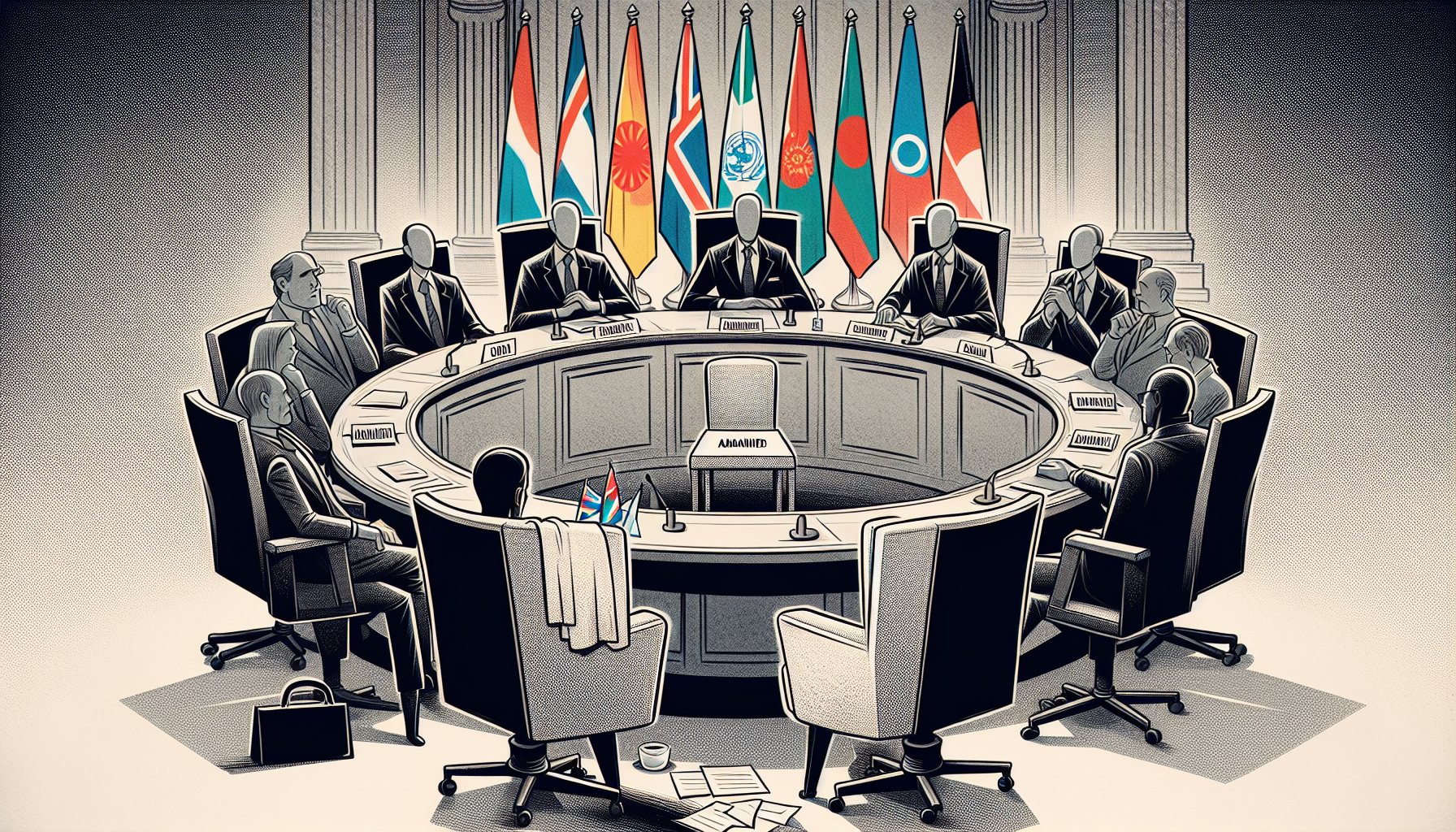Understanding the Delicate Dance of Diplomacy: Unpacking Trump's Abrupt G7 Departure
Hello Global Observers,
In today's global landscape, where every handshake and photo op at international summits is dissected for its geopolitical implications, any deviation from the script is nothing short of a seismic event in the world of diplomacy. Enter President Donald Trump, a leader known for rewriting the norms of international engagement.
On a pivotal day at the Group of Seven (G7) summit, President Trump cut short his stay in Kananaskis, Alberta, Canada. His premature departure caught many off guard, casting a long shadow over what was supposed to be a cohesive presentation of unified world leadership.
Behind the Curtain of the G7
This year's summit hosted by Canadian Prime Minister Mark Carney brought together leaders from France, Germany, Italy, the United Kingdom, Japan, and the European Union. In this grand theater of diplomacy, every participant plays a role in crafting a narrative—a narrative meant to address some of the world's most pressing issues with a united front.
But what happens when the narrative fractures? When a key player takes an early exit? Trump's decision to leave, purportedly due to ongoing tensions in the Middle East, underscores the volatile intersection of politics and personality.
A Stage Set for Drama
To understand the impact, we must examine the dynamics at play. The summit discussions were expected to culminate in a statement addressing the Iran-Israel conflict—a statement urging de-escalation and the protection of civilians. Trump's absence, coupled with his decision not to endorse this statement, signifies more than just divergent opinions within the cohort of global leaders. It is a testament to the complex interplay of national interests and international pressures.
By opting out, Trump sent a powerful message about where American priorities lie—or rather, don't lie—in a rapidly changing geopolitical landscape. It's a move that shuffles alliances and tests diplomatic patience.
The Power Play
In modern diplomacy, absence often speaks louder than presence. Trump's early departure wasn't just a logistical decision; it was a strategic pivot. Much like a master chess player anticipating the opponent's moves, Trump’s exit requires us to consider the implications deeply—both immediate and in the broader geopolitical context.
The ripple effects are unavoidable. What are the consequences when the primary advocate for a powerful, albeit controversial, set of global policies decides not to play ball? For the remaining G7 leaders, continuing without Trump's input meant recalibrating the summit's tone and substance in his absence.
Reading Between the Diplomatic Lines
For the casual observer, this departure might seem like just another headline. But for those of us who keep a close eye on the pulse of global governance, it highlights a critical question: How do we navigate global dialogues when national agendas clash? Trump's actions challenge the traditional frameworks of unity and compromise.
Moreover, this incident echoes through the halls of international discourse, prompting a reflection on how alliances are not merely defined by accords signed, but by the undercurrents driven by each leader's domestic politics and global strategy.
What Lies Ahead
As the summit closes its doors, the implications of Trump's early exit will linger, influencing diplomacy beyond this year's G7 meeting. The narrative will evolve, and the world will watch as new strategies unfold, questioning who leads and who follows in the dance of global diplomacy.
In the coming months, this event will make its mark—not as a mere footnote, but as a significant chapter in the story of international relations, where power, perception, and politics continue to intertwine in an ever-complex tapestry.
Until next time—stay informed and stay engaged.
Yours in contemplation,
A Global Affairs Enthusiast

